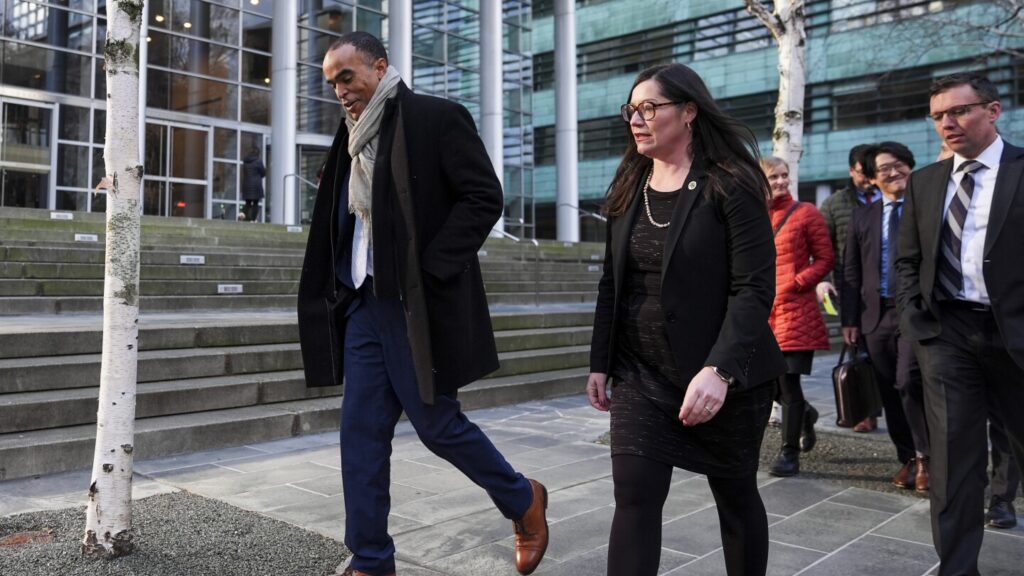In a significant legal battle over President Donald Trump’s birthright citizenship executive order, a federal judge in Seattle is set to hear arguments regarding a potential longer-term pause of the directive. The order aims to end citizenship for children born to parents who are not legally in the country. The hearing involves the Trump administration, four states challenging the order, and an immigrant rights organization representing a proposed class of expectant parents.
This development follows a Maryland federal judge’s decision to issue a nationwide pause in a similar case involving immigrant rights groups and pregnant women. The core issue revolves around the constitutionality of the president’s executive order, which seeks to halt automatic citizenship for children born on U.S. soil to parents in the country illegally or on temporary lawful status.
Judge John Coughenour, a Ronald Reagan appointee, expressed strong views on the case during a previous hearing, emphasizing the clarity of the legal question at hand. The temporary restraining order blocking the order’s implementation has been extended pending further resolution of the case, subject to potential appeals by the Trump administration.
In total, 22 states and various organizations have filed lawsuits challenging the order. The Seattle case involves four states and an immigrant rights group, while another hearing is scheduled in Massachusetts. Central to these legal battles is the interpretation of the 14th Amendment to the Constitution, with arguments revolving around the definition of citizenship for children born in the United States. The Trump administration contends that children of noncitizens are not subject to U.S. jurisdiction and, therefore, not entitled to citizenship, a stance that is vigorously debated by opposing parties.
The legal proceedings highlight the complex and contentious nature of birthright citizenship and its constitutional implications in the United States, with significant implications for the future interpretation of citizenship laws.

